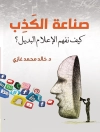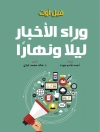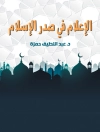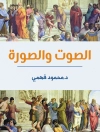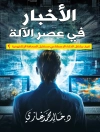While television has always played a role in recording and curating history, shaping cultural memory, and influencing public sentiment, the changing nature of the medium in the post-network era finds viewers experiencing and participating in this process in new ways. They skim through commercials, live tweet press conferences and award shows, and tune into reality shows to escape reality. This new era, defined by the heightened anxiety and fear ushered in by 9/11, has been documented by our media consumption, production, and reaction.
In Small Screen, Big Feels, Melissa Ames asserts that TV has been instrumental in cultivating a shared memory of emotionally charged events unfolding in the United States since September 11, 2001. She analyzes specific shows and genres to illustrate the ways in which cultural fears are embedded into our entertainment in series such as The Walking Dead and Lost or critiqued through programs like The Daily Show. In the final section of the book, Ames provides three audience studies that showcase how viewers consume and circulate emotions in the post-network era: analyses of live tweets from Shonda Rhimes’s drama, How to Get Away with Murder (2010–2020), ABC’s reality franchises, The Bachelor (2002–present) and The Bachelorette (2003–present), and political coverage of the 2016 Presidential Debates.
Though film has been closely studied through the lens of affect theory, little research has been done to apply the same methods to television. Engaging an impressively wide range of texts, genres, media, and formats, Ames offers a trenchant analysis of how televisual programming in the United States responded to and reinforced a cultural climate grounded in fear and anxiety.
Table des matières
1. Introduction: Watching (and Feeling) Contemporary American TV: Understanding the Relationship among Societal Conflict, Technological Advancement, and Television Programming
Part I. Post-9/11 Televisual Trends: Analyzing the Affectual Climate on and off the Small Screen
2. Screening Terror: How 9/11 Affected Twenty-first-Century Televisual Fiction
3. Escaping Reality by Watching Reality TV? Voyeurism, Schadenfreude, and Other Coping Mechanisms for Avoiding or Engaging in Societal Reflection
4. Performing and Experiencing Anger (through Humor): Infotainment’s Increased Visibility and Political Effect
Part II. Mediating Fear and Anger: How Televisual Affect Reflects and Influences Current Cultural Conflicts
5. ‘All the Best Cowboys Have Daddy Issues’: A Psychoanalytic Reading of the Father-Child Relationships on ABC’s Lost
6. The Trauma of Post-Apocalyptic Motherhood: The Walking Dead’s Social Commentary on Contemporary Gender Roles
7. A Country (Still) Divided: How Recent Vampire Series Use Nostalgia to Comment on Current Issues Related to Gender, Race, and Sexuality
8. Fictionalizing Ferguson in Prime-Time Dramas: Interrogating the Potentialities and Consequences of Remediating Events That Are Still in Progress
Part III. Amplifying Affect: Twenty-first-Century Viewing Practices—From Fandom to Digital Activism and Beyond
9. Live Tweets as Social Commentary? Analyzing How Gender, Race, and Sexuality Play into Conceptions of Morality in How to Get Away with Murder
10. Defending The Bachelorette: What Online Comments from Reality TV Fans Reveal about Contemporary Gender Expectations, and Live-Tweeting as a Form of Feminist Digital Activism
11. ‘I’m (Not) with Her’: How the Political Commentary Surrounding the 2016 U.S. Presidential Election Reflects Anxieties Concerning Gender Equality
12. Conclusion: Screening Emotion, Archiving Affect, Circulating Feelings: Final Thoughts and Even More Questions
Acknowledgements
Notes
Index
A propos de l’auteur
Melissa Ames is professor of English and director of English education at Eastern Illinois University. She is a coeditor of Women and Language: Gendered Communication Across Media, the editor of Time in Television Narrative: Exploring Temporality in Twenty-First-Century Programming, and a coauthor of How Pop Culture Shapes the Stages of a Woman’s Life: From Toddlers-in-Tiaras to Cougars-on-the-Prowl.



